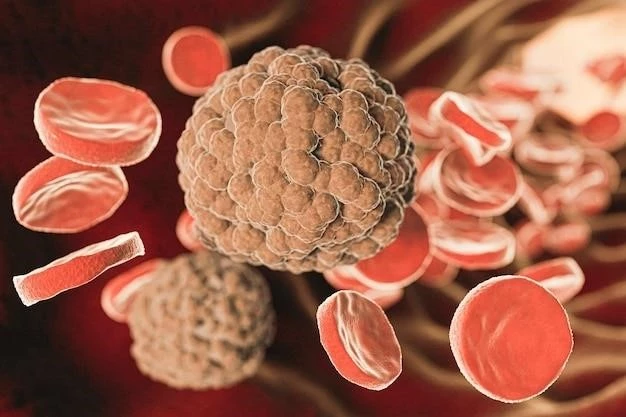Understanding Cholemia
Cholemia, specifically familial cholemia, is a rare genetic disorder characterized by abnormal bile production.
Definition and Overview
Familial cholemia, also known as hereditary cholemia, is a genetic condition that affects the liver’s ability to process bile. Bile is a crucial substance for digestion, and abnormalities in its metabolism can lead to serious health issues. Individuals with cholemia may experience a range of symptoms, including jaundice, fatigue, and abdominal pain. Understanding the genetic basis of familial cholemia is essential for diagnosis and treatment. Research in this field focuses on uncovering the complex mechanisms underlying the condition and developing targeted therapies to improve outcomes for affected individuals.
Symptoms of Familial Cholemia
Common symptoms of familial cholemia include jaundice, fatigue, and abdominal pain.
Common Symptoms
The most commonly observed symptoms of familial cholemia include yellowing of the skin and eyes (jaundice), fatigue, itching, dark urine, and abdominal pain. Patients may also experience pale stool and unintentional weight loss. Monitoring these symptoms is crucial for early detection and management of familial cholemia, as they can impact the individual’s quality of life and overall health. Consultation with healthcare professionals is recommended for proper diagnosis and treatment planning.

Genetic Causes of Cholemia
Familial cholemia is primarily caused by genetic mutations affecting bile metabolism processes.
Inheritance Patterns
Familial cholemia follows an autosomal recessive inheritance pattern, meaning that both parents must pass on a mutated gene for a child to inherit the condition. Individuals with one copy of the mutated gene are carriers but typically do not show symptoms. Understanding the inheritance patterns of cholemia is key in genetic counseling and family planning to assess the risk of passing on the disorder to future generations. Genetic testing can help identify carriers and inform treatment and prevention strategies.
Treatment Options for Familial Cholemia
Medical interventions focus on managing symptoms and complications, including liver support and nutritional therapy.
Medical Interventions
Treatment for familial cholemia may involve medications to improve bile flow, liver transplantation in severe cases, and close monitoring of liver function. Additionally, nutritional support, including a balanced diet and vitamin supplementation, plays a crucial role in managing the condition. Patients with familial cholemia may require ongoing medical care to address symptoms and prevent complications. Collaborating with a healthcare team specialized in genetic liver disorders is essential for individualized treatment plans and optimal health outcomes.
Lifestyle Management for Cholemia Patients
Dietary modifications and regular exercise can support overall health and well-being in cholemia patients.
Dietary Recommendations
Patients with cholemia should follow a diet low in saturated fats, cholesterol, and refined sugars. Emphasizing fruits, vegetables, whole grains, and lean proteins can support liver function and bile production. Adequate hydration and portion control are also important. Working with a registered dietitian to create a personalized nutrition plan is recommended to ensure optimal nutrient intake and management of cholemia symptoms. Avoiding alcohol and fried foods is typically advised to minimize stress on the liver and promote overall well-being.
Cholemia Research and Developments
Ongoing studies aim to enhance our understanding of cholemia genetics, advance treatment options, and improve patient outcomes.
Current Studies
Current research on cholemia focuses on identifying new genetic mutations related to the condition, developing targeted therapies to restore proper bile metabolism, and exploring the impact of lifestyle interventions on disease progression. Clinical trials are underway to evaluate the efficacy and safety of novel treatments for familial cholemia. Collaborations between clinicians, researchers, and patients are essential in advancing our knowledge and improving care for individuals affected by this rare genetic disorder.
Coping with Familial Cholemia Diagnosis
Receiving a familial cholemia diagnosis can be challenging, requiring emotional support and proactive healthcare management.
Emotional Support
Individuals and families coping with a familial cholemia diagnosis may benefit from counseling, support groups, and mental health services. Managing the emotional impact of living with a chronic genetic condition is crucial for overall well-being. Seeking assistance from healthcare providers, therapists, or patient advocacy organizations can provide guidance, resources, and a sense of community. Open communication with loved ones and healthcare professionals can help navigate the challenges associated with familial cholemia and promote resilience in facing the condition.
Cholemia Prevention Strategies
Preventive measures involve genetic counseling, early detection, and lifestyle modifications for at-risk individuals.
Risk Reduction
Risk reduction strategies for cholemia include genetic testing for carriers, regular medical screenings, maintaining a healthy lifestyle, and avoiding known triggers that may exacerbate symptoms. Genetic counseling can help individuals understand their risk of passing on cholemia and make informed decisions about family planning. Early detection of symptoms and prompt medical intervention can prevent complications associated with the condition. By adopting proactive measures and staying informed, individuals at risk of familial cholemia can take steps to mitigate its impact on their health and well-being.
